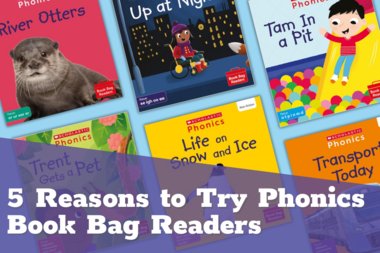A Year of Reading: Indexing Books
In Dr Kornel Kossuth’s tenth post for us as he continues on in his challenge to promote reading for pleasure during the school day, he discusses the censorship of books, and whether it’s something we should consider when choosing books for our children.
Firstly, a note on the title; I don’t mean how to sort books in the library – a thorny issue fraught with difficulties in and of itself, especially for the more orderly among us, though an alphabetical categorization for fiction and a topical one for non-fiction seems the most usual and easy-to-use. No. What I mean is restricting the access of pupils to some books, or, like the Catholic Church did erstwhile, placing some books on an index of prohibited books.
As a lover of books I am no friend of censorship. On the other hand as a teacher I do recognize that not all information is appropriate to all children. But where to draw the lines? And, more troublingly, are we making books more interesting by banning or restricting them? We all know that the surest way to make a song hit number 1 is to ban it or restrict its playing to after a certain time when all the good people have gone to bed.
Generally there are two reasons why people might want to restrict access to certain books: rude language and rude acts.
Let’s look at each separately.
Most expletives have become so commonplace through rap and other forms of popular music that few shock anymore. And mostly the words being used are standard fare (if such a word is applicable here): the f-word and the s-word. There is very little use of the (Chaucerian!) queynte or subsequent forms. It is affectation to pretend that most 10-year-olds do not know these words as expletives, though their exact meaning might be hidden from them. Children realize these words are forbidden and therefore relish them when they are used. It is safe naughtiness, so to speak. Their innocence is proven by the titter that usually greets the reading or hearing of such innocuous words as “bottom”. No real danger of corruption there, then.
What about more detailed or lurid descriptions of saucy scenes in novels? Well, once again I fail to see the power to corrupt. Pre-teens tend to find such things revolting and will shy away from them, though with some residual interest. Slightly older children will devour these in an attempt to learn something about what they are developing into. And while these scenes may set some bad examples and suggest unrealistic scenarios, this no more so than the internet or whispered discussions among – equally clueless – peers. It is reality that will set them on the path of correction.
Quite on the contrary, in books, as opposed to the internet or gossip, can be found plenty of examples of fulfilling and satisfying relationships, of friendship and trust and loyalty. Despite the odd ‘juicier’ scene, books are a haven of learning about social norms and how to form loving and lasting relationships.
However, my somewhat liberal views are not usually shared by parents seeking to protect their seemingly innocent darlings from any taint of pollution, nor by headmasters having to placate said parents. So, I fear, it is a sign of the times that libraries need to have a separate section for older year groups, if only so they have covered what no child should see bared.
Kornel Kossuth has loved English since a young age and began teaching it to children ten years ago. Before turning to teaching, he was a lawyer and (briefly) a diplomat. A published poet, poetry busker and poetry blogger, he is also the author of a number of English resources and is currently working on textbooks for years 7 and 8.
Similar Posts
-

5 Reasons to Try Phonics Book Bag Readers
Scholastic Phonics Book Bag Readers are an easy-to-use series of decodable readers designed to help children develop their phonic knowledge and early reading skills at home and in the classroom. Check out our 5 reasons to…
-

Giving Great Assemblies: 15 Top Tips
What makes a good assembly? John Dabell shares his top 15 tips to elevate your assembly skills.
-

Exciting school trip ideas for the autumn term
Engaging and educational school trip ideas for Primary and Early Years this autumn term.
